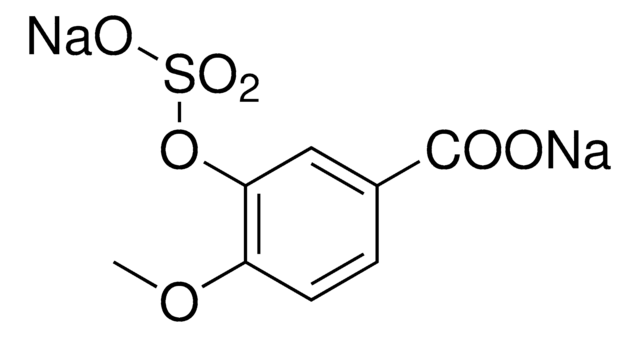SMB00935
Pyrocatechol Sulfate
≥95% (H-NMR)
Synonym(s):
Pyrocatechol Sulfate, (2-Hydroxyphenyl)oxidanesulfonic acid, 2-hydroxyphenyl hydrogen sulfate
About This Item
Recommended Products
Quality Level
Assay
≥95% (H-NMR)
form
solid
color
white
storage temp.
2-8°C
InChI
1S/C6H6O5S/c7-5-3-1-2-4-6(5)11-12(8,9)10/h1-4,7H,(H,8,9,10)
InChI key
MZPWKJZDOCIALD-UHFFFAOYSA-N
General description
Application
Other Notes
Signal Word
Warning
Hazard Statements
Precautionary Statements
Hazard Classifications
Eye Irrit. 2 - Skin Irrit. 2
Storage Class Code
11 - Combustible Solids
WGK
WGK 3
Flash Point(F)
Not applicable
Flash Point(C)
Not applicable
Choose from one of the most recent versions:
Certificates of Analysis (COA)
Don't see the Right Version?
If you require a particular version, you can look up a specific certificate by the Lot or Batch number.
Already Own This Product?
Find documentation for the products that you have recently purchased in the Document Library.
Our team of scientists has experience in all areas of research including Life Science, Material Science, Chemical Synthesis, Chromatography, Analytical and many others.
Contact Technical Service









